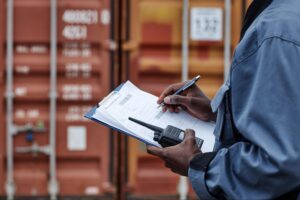A Comprehensive Guide to Cargo Tracking Systems

From Warehouse to Destination: A Comprehensive Guide to Cargo Tracking Systems
In the dynamic world of logistics and transportation, the seamless movement of goods from warehouse to destination is paramount. For businesses in Tanzania and across Africa, where vast distances and diverse terrains present unique challenges, the need for efficient cargo tracking systems cannot be overstated. In this comprehensive guide, we delve into the intricacies of cargo tracking systems, exploring their significance, functionality, and benefits for businesses operating in the region.

Understanding Cargo Tracking Systems
Cargo tracking systems leverage advanced technologies, primarily GPS (Global Positioning System) and cellular networks, to monitor the location, status, and condition of shipments in real-time. These systems provide valuable insights into the entire journey of goods, from the moment they leave the warehouse until they reach their final destination. By collecting and analyzing data, cargo tracking systems empower businesses to optimize routes, enhance security, and improve overall efficiency in logistics operations.
Key Components and Features
A robust cargo tracking system comprises several key components and features designed to meet the specific needs of businesses operating in diverse industries. These include:
1. GPS Tracking Devices: Compact and versatile, GPS tracking devices are installed on vehicles, containers, or cargo to transmit location data at regular intervals. These devices offer precise location tracking, enabling businesses to monitor the movement of their assets in real-time.
2. Geofencing: Geofencing allows businesses to define virtual boundaries or geographic zones around specific areas such as warehouses, ports, or delivery routes. By setting up geofences, businesses can receive alerts and notifications whenever a vehicle or shipment enters or exits designated areas, enabling proactive management and monitoring.

3. Temperature and Condition Monitoring: For businesses transporting perishable or sensitive goods, temperature and condition monitoring features are essential. Cargo tracking systems equipped with sensors can monitor temperature, humidity, and other environmental conditions, ensuring that goods remain within specified parameters throughout the journey.
4. Integration with Fleet Management Software: Integration with fleet management software enables seamless communication and data exchange between cargo tracking systems and other operational tools. This integration streamlines workflow processes, enhances data visibility, and facilitates better decision-making for businesses managing a fleet of vehicles.

Benefits for Businesses in Tanzania and Beyond
Implementing a comprehensive cargo tracking system offers a myriad of benefits for businesses operating in Tanzania and beyond:
1. Enhanced Security: With real-time monitoring and geofencing capabilities, cargo tracking systems deter theft, unauthorized access, and tampering of goods, ensuring the security and integrity of shipments throughout the supply chain.
2. Improved Efficiency: By providing visibility into the location and status of shipments, cargo tracking systems enable businesses to optimize routes, minimize delays, and streamline logistics operations, ultimately improving overall efficiency and reducing operational costs particularly in regions with complex trade routes and infrastructure challenges.
3. Risk Mitigation: Proactive monitoring of environmental conditions, such as temperature and humidity, helps businesses mitigate the risk of spoilage, damage, or loss of perishable goods, thereby safeguarding their investments and reputation.
4. Customer Satisfaction: Real-time tracking and transparent communication allow businesses to provide customers with accurate updates on the status and estimated arrival times of their shipments, enhancing customer satisfaction and loyalty.
In today’s rapidly evolving marketplace, the effective management and tracking of cargo are essential for businesses seeking to remain competitive and responsive to customer demands. A comprehensive cargo tracking system not only provides visibility and control over shipments but also empowers businesses to optimize operations, reduce risks, and deliver superior service to customers. By investing in advanced tracking technologies, businesses in Tanzania can unlock new opportunities for growth, efficiency, and success in the global marketplace.
